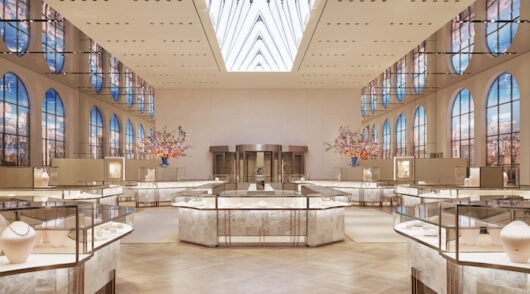People’s basic needs don’t really change, but the way we satisfy them does.
And future vision doesn’t come from asking consumers what they want.
Those compelling conclusions are from Acacia Leroy, Singapore-based trend analyst with Trendwatching Asia-Pacific, who was sharing insights with delegates to this week’s NRCE in Manila, organised by the Philippines Retailers Association.
Leroy used examples from many industries of how technology and experiential activities – both online and offline – are changing the way consumers behave in an increasingly digital world.
Revolutionary apps
Many generations ago, Leroy argues, if you’d asked travellers what they want, they’d have asked for faster horses so their carriages could be towed faster. Then along came Henry Ford with a car for the masses, and no one wanted horses any more.
In the same vein, if you ask people who have trouble waking up for an early morning flight or to make an appointment on time, they may well say they want a louder alarm clock.
Enter app Wakie, described as “a social alarm clock” to turn that conclusion on its head.
Users can set a time they want to be woken, and Wakie tasks a person from the other side of the world to make a live voice call to arouse the sleeper. A quick poll of Leroy’s colleagues concluded no-one would want to have a stranger waking them up, but the app has proven a huge success. A quick check of Google Play store shows more than 500,000 downloads. “Best app ever,” gushed one user quoted by Leroy from an app review site, where users agreed it was motivating and exciting being woken from their slumber by a total stranger from Shoreditch, London, or downtown Moscow. The service is now apparently making more than 200,000 wake-up calls a month.
Similarly, a poll in the US showed Uber has changed people’s expectations of taxi services. Since the app-based service was rolled out, people have been prepared to wait for far less time for their booked taxi to arrive than in the pre-Uber era.
Leroy says brands and companies are connecting with customers in ways never thought of before – and reaping the results. In the US, for example, a hotel has partnered with a fashion retailer to provide clothes in rooms which are suited to the local climate. A guest can use the clothes, much in the way they use a minibar – and if they like what they wear, pay for them when they check out.
In South Korea, the North Face ran a short-term experiential room featuring a climbing wall (with a soft landing pad on the floor). A jacket was lowered from a ceiling hatch and the customer given 30 seconds to climb high enough to leap off the wall and catch the jacket – if they dared – on the way down. Those who succeeded got to take the jacket home.
Watch the video here:
Two-way street
Leroy also highlighted the efforts of service providers to even the balance with customers in an era where so many consumers rush online to review hotels, stores, airlines and others in the retail and service sectors, a trend she calls ‘two-way transparency’.
One example is an online booking service, which scales discounts on room bookings directly related to the traveller’s social media popularity, on sites such as LinkedIn or Twitter. A vending machine in Europe discounts drinks – by as much as 100 per cent – directly relative to how often the purchaser makes complaints on social media – those with a tendency to criticise too much are asked to pay more.
UK cafe chain Pret a Manger has created budgets for stores allowing staff to reward ‘favourite customers’ with free coffee or other products – people who always smile or are friendly and polite, for example. The program both empowers store staff and encourages good shopper behaviour – and perhaps even flirting, explains The Telegraph here.
Art Series, a boutique hotel chain in Australia, ran a program called ‘Reverse Reviews’ where staff can rate guests in the same way as guests can rate the establishment on sites such as TripAdvisor. “It pays to behave,” was the catchphrase of the promotion. “Think you’re the perfect hotel guest? Stay and request to be reviewed… Get five stars and get a free night to stay again,” the website explains.
Uber in Lagos is ‘fining’ customers who keep driver’s waiting for more than 15 minutes after they are booked – on the principal customers expect a car to arrive on time, so drivers can reasonably expect the passengers to be on time as well. “It’s a two-way street,” observed Leroy.
Peer armies
Apps and new technologies are fuelling a new trend of ‘peer armies’, says Leroy, where consumers are grouping together to help and support each other.
Besides the Wakie service described above, other examples include Chevrolet in the US which pairs a prospective buyer with an existing owner so the buyer can learn, uncensored, about the owner’s experience with the vehicle.
In Sweden, dairy company Lindahls recruits people who run in the mornings for exercise to help deliver fresh yoghurt direct to consumers’ homes. In Amsterdam, KLM Airlines recruits locals to host personalised city tours of travellers with stopovers of eight hours or more.
And in Singapore, Airfrov connects travellers with locals wanting products brought back from countries, such as Japan or the US, which cannot be easily obtained shipped online.
While many of these examples are not from traditional retail operators, Leroy says all businesses need to understand the trends and embrace them.
“We are often asked if we can produce trend reports ‘just from my industry’,” she said.
But that is not how the new engaged community – online or offline – works.






